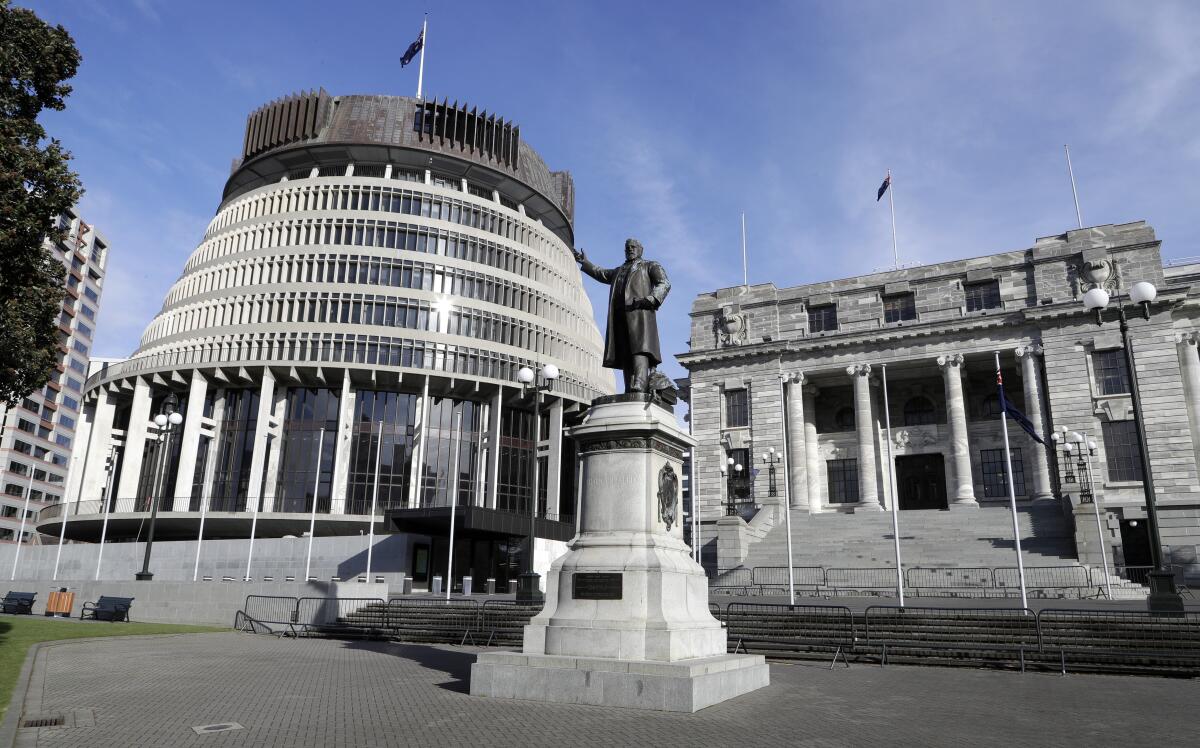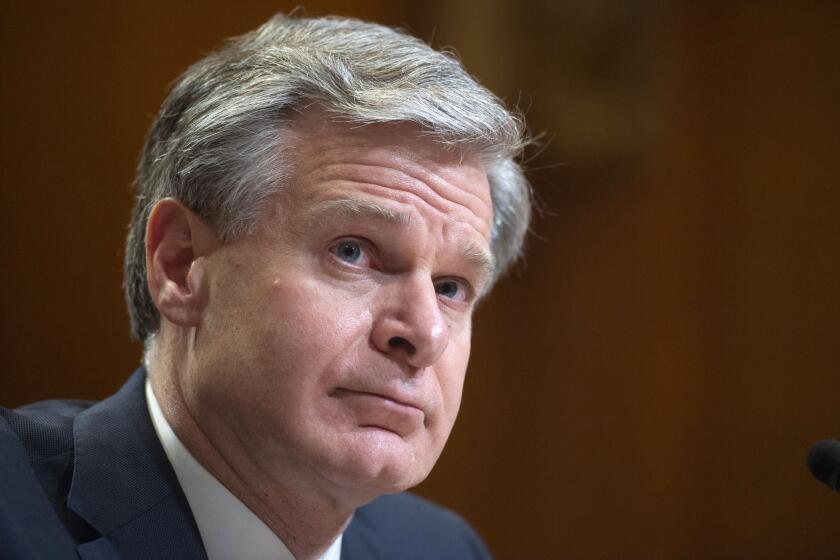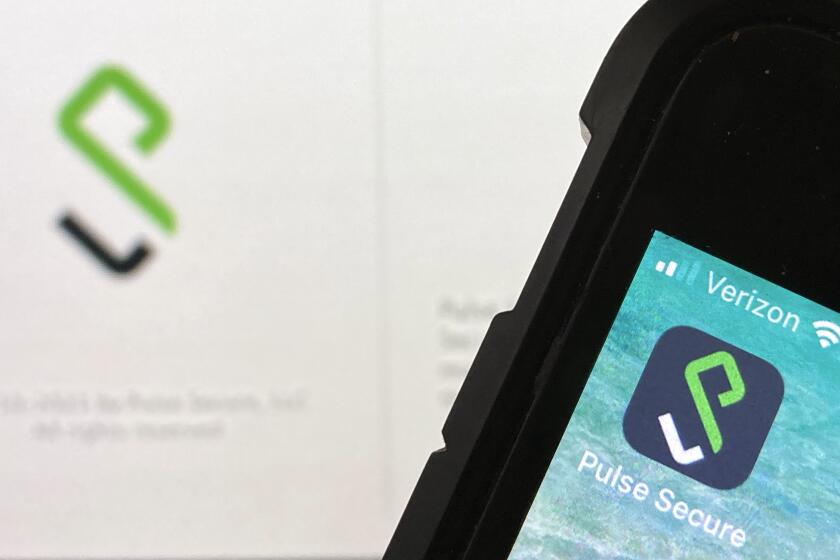New Zealand joins the U.S., U.K. in alleging it was targeted by China-backed cyber-espionage

- Share via
WELLINGTON, New Zealand — Hackers linked to the Chinese government launched a state-sponsored operation that targeted New Zealand’s Parliament in 2021, the country’s security minister said Tuesday.
New Zealand’s allegation comes a day after American and British authorities announced a set of criminal charges and sanctions against seven hackers, all believed to be living in China, who targeted U.S. officials, journalists, corporations and pro-democracy activists, as well as the U.K.’s election watchdog.
“The use of cyber-enabled espionage operations to interfere with democratic institutions and processes anywhere is unacceptable,” Judith Collins, the defense minister responsible for the Government Communications Security Bureau, said in a statement.
Collins said the agency had also established links between a state-sponsored entity linked to China and malicious cyber activity targeting parliamentary entities in New Zealand.
The FBI director and the leader of Britain’s domestic intelligence agency warn business leaders that Beijing is determined to steal their technology.
The bureau’s National Cyber Security Center “completed a robust technical assessment” following a compromise of the Parliamentary Counsel Office and the Parliamentary Service in 2021, and has attributed this activity to a PRC [China] state-sponsored group known as APT40,” Collins said.
“Fortunately, in this instance, the NCSC worked with the impacted organizations to contain the activity and remove the actor shortly after they were able to access the network,” she added.
Collins said New Zealand will not follow the U.S. and U.K. in sanctioning China because New Zealand does not have a law allowing such penalties, nor were there plans to introduce legislation.
Foreign Minister Winston Peters confirmed that New Zealand’s concerns had been conveyed to Chinese Ambassador Wang Xiaolong.
“Foreign interference of this nature is unacceptable, and we have urged China to refrain from such activity in [the] future,” Peters said in a statement Tuesday. “New Zealand will continue to speak out — consistently and predictably — where we see concerning behaviors like this.”
A large-scale cyber-spying campaign blamed on China might have given hackers access to the networks of critical U.S. companies and agencies.
Peters met with his Chinese counterpart, Wang Yi, on March 18, and said the countries share a “significant and complex relationship.”
“We cooperate with China in some areas for mutual benefit,” he said. “At the same time, we have also been consistent and clear that we will speak out on issues of concern.”
In Beijing, Foreign Ministry spokesperson Lin Jian dismissed the allegations as “typical political manipulation” concocted by the United States and Britain, with whom it is in conflict over issues including Taiwan, the South China Sea, Xinjiang, Hong Kong and a range of trade disputes.
“For some time, the U.S., for geopolitical purposes, has encouraged the Five Eyes Alliance, the world’s largest intelligence organization dominated by the U.S., to fabricate and disseminate all kinds of disinformation about threats posed by Chinese hackers,” Lin said at a daily briefing Tuesday, citing the alliance among Australia, Canada, New Zealand, the U.K. and the United States to collect and share sensitive information.
More to Read
Sign up for Essential California
The most important California stories and recommendations in your inbox every morning.
You may occasionally receive promotional content from the Los Angeles Times.












